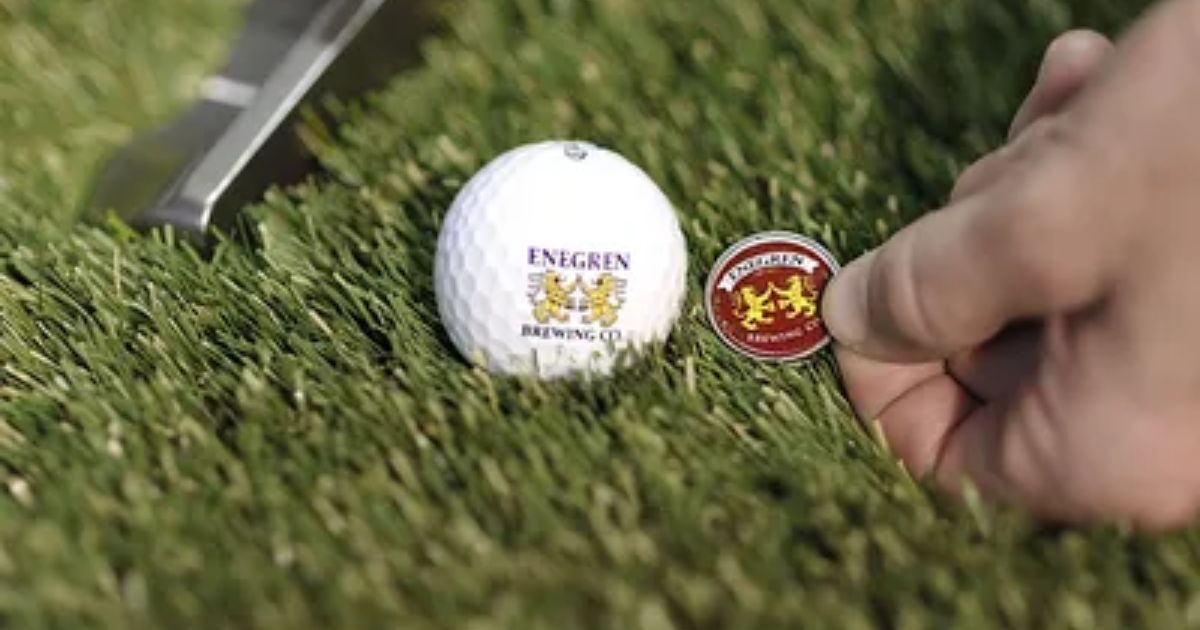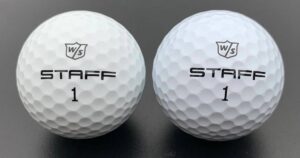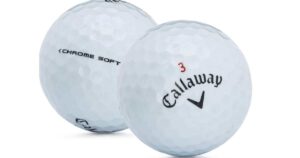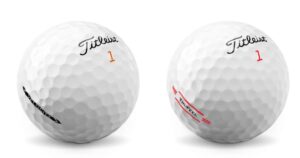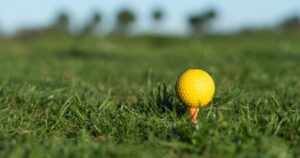Golf balls expire when their performance declines over time. Exposure to elements like sunlight, water, and temperature changes can affect their elasticity and aerodynamics. As a result, expired golf balls may not fly as far or straight as new ones. It’s recommended to use fresh golf balls for optimal performance on the course.
Ever wondered, “Do golf balls expire?” The answer might surprise you! Just like perishable goods, golf balls have a shelf life. Over time, factors like weather and usage can impact their performance. So, the next time you tee off, consider if your golf balls are past their prime. Let’s explore the fascinating world of whether or not golf balls expire and how it can affect your game!
Curious about whether golf balls expire? Indeed, they do! Over time, exposure to the elements and frequent use can affect a golf ball’s performance. The next time you hit the links, stay with us to discover more about the intriguing concept of golf balls having an expiration date. It’s a game-changer for your golfing experience!
When Should I Replace My Golf Balls?
Ever wondered, When should I replace my golf balls? The answer lies in their wear and tear. Golf balls endure a lot, from the force of the swing to exposure to the elements. If you notice changes in their appearance, like scuffs or cracks, or if they no longer fly as far and straight as they used to, it’s time for a replacement. Keeping an eye on your golf balls’ condition ensures you get the best performance on the course.
To maximize your game, consider replacing your golf balls every few rounds or when you notice a decline in their performance. Fresh golf balls with optimal aerodynamics can significantly impact your shots. So, stay vigilant, and when in doubt, make the switch to keep your golf game at its peak!
Where Do You Store Your New Golf Balls?
Proper storage is crucial for maintaining the quality of your new golf balls. Address golf ball storage by keeping them in a cool, dry place, away from direct sunlight and extreme temperatures. A consistent environment helps preserve their elasticity and ensures peak performance on the golf course.
Collisions
Golf balls endure collisions with club faces, trees, and even the ground during play. These impacts can affect their integrity and performance. Regularly inspect your golf balls for visible damage, such as cracks or deep scuff marks, and replace them if needed to maintain optimal playability.
Time In The Water
Accidents happen, and golf balls may find themselves in water hazards. While many modern golf balls are designed to resist water damage, prolonged exposure can still impact their performance. If your golf balls spend significant time in the water, consider replacing them to ensure consistent playability and distance on the course.
Do Golf Balls Go Bad?
Have you ever wondered, “Do golf balls go bad?” Well, the answer might surprise you! Golf balls can indeed lose their optimal performance over time. Factors like exposure to the elements, repeated use, and the passage of time can impact their elasticity and aerodynamics.
So, the next time you reach for your golf bag, consider the age of your golf balls. While they may not exactly go “bad” like perishable items, they can experience a decline in performance. Stay tuned to explore more about the lifespan of golf balls and how it can influence your game on the green!
Do Golf Balls Get Waterlogged?
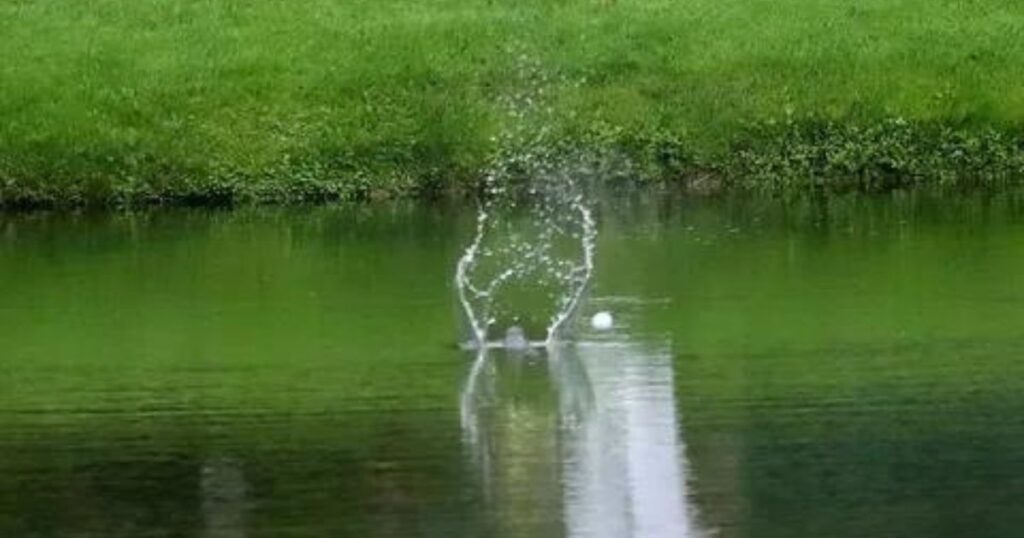
Have you ever wondered if golf balls can get waterlogged? The answer is yes! When golf balls spend too much time in water hazards or wet conditions, they absorb water through their cover. This can lead to a decrease in performance as the added weight and altered aerodynamics affect the ball’s flight.
o, next time you find your ball in a water hazard, consider its potential waterlogging. It’s not just a damp inconvenience – waterlogged golf balls may not carry as far and could veer off course. Understanding this aspect adds a strategic element to the game, reminding golfers to stay out of the water to keep their shots crisp and accurate.
Used Golf Balls Are Not so Bad
Used golf balls often get a bad rap, but they’re not as bad as you might think. Some golfers prefer them because they cost less than new ones. However, critics argue that used balls might not perform as well due to wear and tear.
Used golf balls aren’t as terrible as some people believe. Many golfers opt for them to save money compared to buying new ones. Yet, there’s a debate about their performance, with some saying that wear and tear could affect how well they play.
Avoid the Extremes to Make Unused Golf Balls Last
| Tips to Make Unused Golf Balls Last |
| Storage: Keep unused golf balls in a cool, dry place to prevent extreme temperature fluctuations that can affect their performance. |
| Moisture Control: Store golf balls away from moisture to avoid compromising their integrity. Moisture can seep in and impact the ball’s core and outer layers. |
| Avoid Sun Exposure: Prolonged exposure to sunlight can damage the materials in golf balls. Store them in a shaded area or a container to shield them from UV rays. |
| Limited Use: While it might be tempting to practice extensively with new balls, limit their use to maintain their quality for longer. Overuse can lead to a quicker deterioration of the ball’s performance. |
| Quality Containers: Invest in quality containers or pouches designed for golf ball storage to provide an extra layer of protection against external elements. |
| Regular Inspection: Periodically inspect unused golf balls for any signs of damage or wear. Discard any that show visible wear and tear to maintain consistent performance. |
Do Urethane Golf Balls Go Bad?
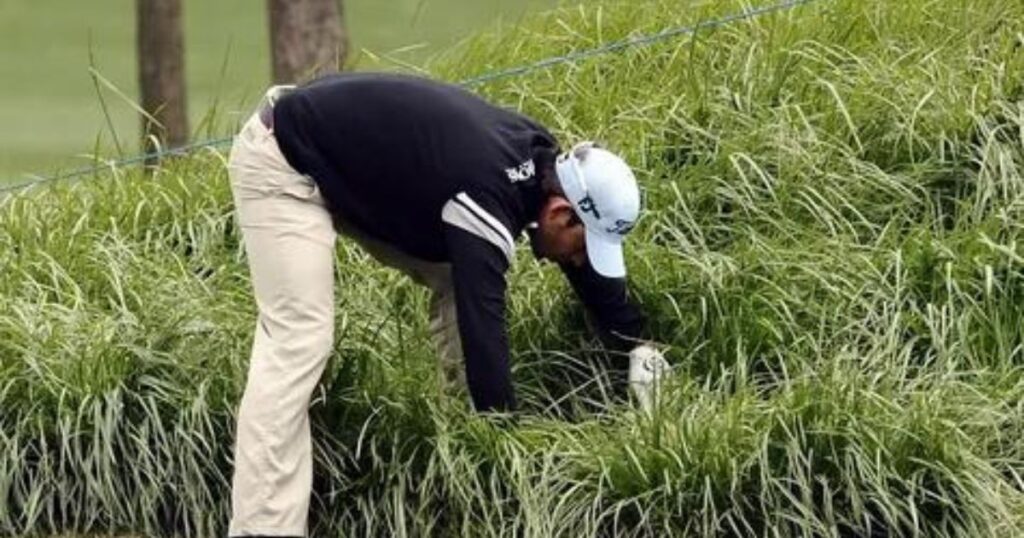
Ever wondered if urethane golf balls go bad? The answer lies in understanding the material. Urethane golf balls, known for their soft feel and spin control, can indeed deteriorate over time. Exposure to various environmental factors, such as sunlight and moisture, may impact the ball’s composition, affecting its performance on the golf course.
Unlike fine wine, urethane golf balls don’t get better with age. As they age, their elasticity and overall quality may decline, leading to diminished distance and control. So, the next time you reach for your golf bag, consider the condition of your urethane golf balls and whether it’s time to refresh your supply for an optimal swing on the fairway.
The Lifespan of a Golf Ball (Do Golf Balls Get Old?)
Ever wondered if golf balls age like fine wine? The lifespan of a golf ball is a question that often crosses the minds of avid golfers. The truth is, just like anything else, golf balls do get old. Their performance can be affected by exposure to various elements and the wear and tear of the game.
So, do golf balls get old? Absolutely! The lifespan of a golf ball is influenced by factors such as weather conditions, storage, and usage. As we delve into the intriguing world of golf, it becomes clear that understanding the ageing process of golf balls is key to maintaining peak performance on the green.
Do Golf Balls Have a Shelf Life?

Ever wondered if golf balls have a shelf life? The answer is yes! Golf balls can indeed lose their performance over time. Exposure to the elements such as sunlight, water, and extreme temperatures can affect their elasticity and aerodynamics. As a result, the once-perfect sphere may not fly as far or straight as it used to. It’s like a subtle ageing process for your golf equipment.
So, when you’re teeing off and contemplating the longevity of your golf balls, remember that they do have a shelf life. To maintain optimal performance on the course, it’s a good idea to use fresh golf balls. Understanding the dynamics of a golf ball’s lifespan can make a significant difference in your game.
Do Golf Balls Go Bad? 3 Factors That Impact Performance
When it comes to golf balls, understanding the factors that influence their performance is crucial. Exposure to the elements, consistent use, and the inherent quality of the ball all contribute to whether golf balls go bad. As you navigate the golf course, keep in mind these three key elements to ensure you’re getting the most out of your golfing experience.
Exposure to Elements
Golf balls are susceptible to the elements, including sunlight, water, and temperature changes. Prolonged exposure to these factors can impact the materials and construction of the ball, leading to a decline in performance over time.
Frequency of Use
The more a golf ball is used, the more wear and tear it undergoes. Constant contact with club faces, the ground, and other surfaces can affect the ball’s outer layer and alter its aerodynamic properties, potentially diminishing its overall performance.
Storage Conditions
Proper storage is crucial for maintaining the quality of golf balls. Extreme temperatures, both hot and cold, can accelerate the ageing process. Storing golf balls in a cool, dry place and away from direct sunlight helps preserve their characteristics and ensures they perform optimally when used on the golf course.
FAQS
How can you tell if a golf ball is still good?
Check golf ball elasticity by squeezing it. A good ball will quickly regain its shape.
How can you tell how old a golf ball is?
Examine the ball’s packaging or branding for manufacturing date.
What happens to old golf balls?
Old golf balls lose performance due to wear; they may not fly as far or straight.
How many hits can a golf ball take?
Golf balls can withstand varying hits, but replace them when they show signs of wear or damage.
Conclusion
In summary, the question: Do golf balls expire? is addressed by acknowledging the influence of time and environmental factors on their performance. The prolonged exposure to sunlight, water, and temperature fluctuations, combined with regular use, leads to a deterioration in their elasticity and aerodynamics. Consequently, the lifespan of golf balls is finite, impacting their overall quality and performance.
